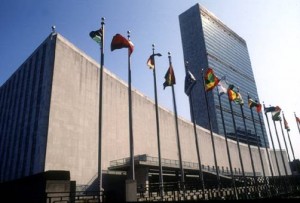Adalah to Nahariya Hospital: "Prohibition on speaking Arabic violates rights of staff and needs of Arab patients"
On 8 September 2014, Adalah sent an urgent letter to the Director of the Nahariya Hospital, Dr. Mas'ad Barhoum, following media reports that the hospital was mandating its staff to speak solely in Hebrew throughout their work at the institute, even if they were working with Arab patients and colleagues.
In the letter, Adalah Attorney Sawsan Zaher stressed the seriousness of such instructions and called for their immediate cancellation. This is particularly important as Nahariya Hospital is the closest hospital to many Arab towns and villages in the Galilee region, and is also known for its high percentage of Arab patients and its high ratio of Arab doctors, nurses and staff members under its employment. The instructions also do not take into account the fact that some Arab patients may not speak Hebrew at all.
In the hospital's response to Adalah's letter, Dr. Barhoum said that the information published in the press was inaccurate, and that the instructions are not absolute and do not prevent Arabic from being spoken in all parts of the hospital.
Adalah refuted Dr. Barhoum's claims in a second letter sent on 10 September 2014, in which it confirmed that it thoroughly examined the original letter issued to the hospital's staff by the hospital administration, which clearly declares the imposition of a sweeping prohibition on Arabic that applies to "all parts of the hospital" without exception, Attorney Zaher demanded once more that the hospital administration circulate new instructions that remove the prohibition on staff from speaking in Arabic.
Hospital instructions illegal, contradict need for cultural-sensitivity
Attorney Zaher stated in its original letter that the instructions issued by the hospital are illegal, as they essentially force workers to not to speak in their mother tongue. Attorney Zaher described these instructions as "repressive" and a violation of the staff's right to use their mother tongue. The letter added that preventing the doctor or nurse from speaking in their mother tongue is also a violation of their freedom of expression, and that "communicating in one's mother tongue is the best way to express oneself and to formulate ideas in more accurate forms."
In addition, the letter argued that the Nahariya Hospital instructions contradict the instructions issued by the Ministry of Health (MOH), published in February 2011, about ensuring that health facilities and systems were culturally appropriate and sensitive for all the citizens of the state. According to the MOH instructions, language is an essential element that must be taken into account in order to reduce discrimination against patients and close the gaps in the provision of health services.
The instructions not only repress the right of workers to use their mother tongue, but they also affect the patient and the doctor, their identity and language, and demean their dignity. It also ignores the urgent needs of those who suffer from particular diseases or ailments by preventing them from receiving treatment in a comfortable and understandable atmosphere and dialogue, which would help them to more easily address and cope with their disease.















